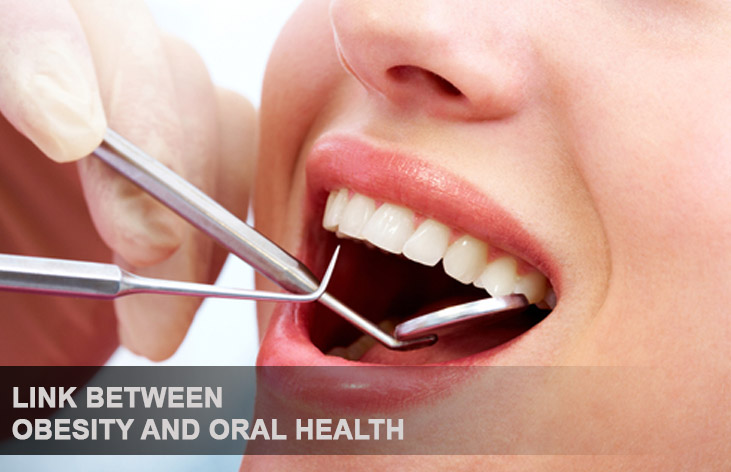Link between Obesity and Oral Health

Obesity has been linked with several chronic diseases including heart diseases, diabetes, and stroke, among others. Is it possible that obesity also affects a person’s oral health and vise versa?
According to some studies, obesity can affect a person’s oral health in a couple of ways. Obesity affects what a person consumes and how they consume it. Having a bad diet puts a person at risk of tooth decay and cavities. Eating foods with higher sugar content can lead to plaque buildup.
It can also lead to several types of gum diseases. Obese people have higher chances of developing gum disease, studies have shown.
The same is true the other way around. Oral bacteria may put a person at risk of developing obesity.
Determining Obesity
You can determine if a person is obese by calculating their Body Mass Index or BMI. This measures a person’s body fat based on their weight and height. BMI is calculated using the equation: Body Weight (kg) / Height (m2).
The categories under BMI include: normal, underweight, overweight, and obese. People in the obese category are more at risk of several chronic diseases including hypertension, diabetes, unhealthy lipid profile, etc.
Obesity can also be determined by measuring the waist circumference or waist-to-hip ratio. Measuring the abdominal fat is a great way to determine if a person is at risk of heart disease and other critical conditions.
Obesity May Contribute to the Development of Periodontal Diseases
Results from various studies show strong evidence of the link between obesity and periodontal disease. In these studies, participants did not have periodontal disease in the beginning of the study.
A five-year prospective study showed that people with a BMI of above 30, whether they were smokers or had diabetes, were at greater risk of developing periodontal disease compared to those with healthier body weight. Even those who are not yet in the obese category but have higher BMIs are more at risk than those with normal BMI.
It has not been determined exactly how obesity contributes to the development of periodontal disease but experts believe that fat tissue promotes a more pro inflammatory state. Also, when fat cells increase, it stimulates the production of soluble pro inflammatory mediators that can lead to periodontal disease.
People with higher BMI and weight-to-hip ratio can have high levels of these mediators which may signal the release of acute phase proteins, later leading to inflammation.
Oral Bacteria May Contribute to Obesity
As mentioned, the same can be said the other way around. Poor oral health can also contribute to the development of obesity. Studies have shown that there may be a connection between a high glycemic diet and dental diseases.
Many experts believe that certain foods contribute to weight gain which leads to obesity. These include fermentable carbohydrates such as refined wheat flour, pasta, and potatoes which are converted into simple sugars in the mouth. These same sugars affect a person’s dental health.
When we consume these simple sugars, they are converted into plaque if not removed right away. As the plaque accumulates on the teeth and gums, it eventually leads to several gum diseases like gingivitis and periodontitis.
Simple carbohydrates contribute significantly to inflammation. When there is inflammation in the gums, it may be a sign that a person is experiencing systematic inflammation that can inevitably lead to weight gain which puts them at risk of obesity. Reducing simple carbohydrate intake may have positive effects not just on lowering body weight but also on having healthier gums and teeth.
Keep in mind that meticulous dental hygiene along with regular visits to the dentist are also important in maintaining your oral health.
Read Also:







